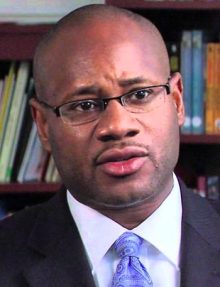House GOP Looks to Push Through New Anti-Black History Bill
The Equality in Education “anti-CRT” bill was introduced this month.

By Cash Michaels –
An effort similar to the “Equality in Education” bill was stymied by Democratic Gov. Roy Cooper in 2021 when he vetoed the measure, calling it “conspiracy-laden politics.”
On the heels of Florida Gov. Ron DeSantis banning advanced placement African American history curriculum in the state’s public schools, North Carolina Republican lawmakers have decided to try again to get a bill outlawing the teaching of what they call “critical race theory (CRT)” in NC public schools. Their efforts were stymied by Democratic Gov. Roy Cooper in 2021 when he vetoed the measure, calling it “conspiracy-laden politics.”
Now, with just one vote shy of a supermajority in the state House, GOP lawmakers believe they can override Cooper’s veto after introducing House Bill 187 called “Equality in Education,” which was introduced last Thursday.
According to the language, HB 187 is “…an act to demonstrate the General Assembly’s intent that students, teachers and administrators, and other school employees recognize the equality and rights of all persons and to prohibit public school units from promoting certain concepts that are contrary to that intent.”
If that language seems general and vague, the subsequent language is anything but, and has given Democrats, especially African American Democratic House members, pause.
Among the many restrictions cited in the proposed measure, public schools in North Carolina would be prohibited from teaching (though the bill uses the term “promote”), among other things, that “an individual, solely by virtue of his or her race or sex, bears responsibility for actions committed in the past by other members of the same race or sex; the United States was created by members of a particular race or sex for the purpose of oppressing members of another race or sex; the rule of law does not exist, but instead is a series of power relationships and struggles among racial or other groups; all Americans are not created equal and are not endowed by their creator with certain unalienable rights, including life, liberty and the pursuit of happiness; and that governments should deny to any person within the government’s jurisdiction the equal protection of law.”
Under this law, if passed by the state House and Senate (which does have a supermajority to override Gov. Cooper’s veto), public schools would have to post on their websites at least 30 days prior “Providing instruction regarding concepts described . . . in curricula, reading lists, seminars, workshops, trainings, or other educational or professional settings; contracting with, hiring, or otherwise engaging speakers, consultants, diversity trainers, or others” who have previously advocated for what would be prohibited by law.
The law, if enacted, says it “would not apply” to textbook histories or other materials used “for the purpose of independent study and research,” or to “speech protected by the First Amendment.”
House Speaker Tim Moore, a Republican, in describing why North Carolina needs the “anti-CRT “law, told reporters last week that North Carolina students go to class “to learn, not be indoctrinated.”

But Black Democratic state lawmakers like Rep. Amos Quick of Guilford County told the News and Observer newspaper, “We need to learn the story of African Americans being able to overcome being brought here and enslaved for long periods of time. We need to learn about these things and how we have progressed as a society. And I think trying to shut down any telling of the actual American history is detrimental to our students, and to our society, because we don’t get a complete picture of who people are, where they’ve come from, and how they’ve contributed.”
If a gubernatorial veto were overridden by both chambers, the law would become effective upon ratification by the NC General Assembly.
According to the website Education Week, “Since January 2021, 44 states have introduced bills or taken other steps that would restrict teaching critical race theory or limit how teachers can discuss racism and sexism, according to an Education Week analysis. Eighteen states have imposed these bans and restrictions either through legislation or other avenues.”






